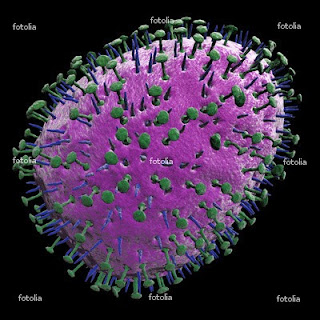Basically, viruses don't want to kill the hand that feeds them.
They need us to exist. If we're dead, they're dead (So to speak. Viruses aren't technically living). Parasites, viruses, colds, bacteria, pathogens, infections only want to be virulent enough to cause us to transmit them, not off us completely.
Have you ever wondered why the heck our nose runs and we cough when we're sick?
Mucous is supposed to be a defense against a cold by filtering out airborne pathogens. So, when we're sick already, isn't that a little bit too late to start the water works? It does seem odd, doesn't it? Well, yes, apparently there is a boost to antiseptic enzymes and immunoglobulins with mucous production, but the real fight is in the blood by white blood cells, not in your nose.
So, could there be an underlying insidious explanation? YES! Our nose runs, coughing, sneezing ensues because we've been hijacked by viruses to become giant virus distribution headquarters! More mucous means we're literally coughing, sneezing and dripping with the pathogen and constantly spreading it. The most effective at spreading (the most effective at hijacking our respiration system) will survive. They don't want to kill us; just use us for their bidding.
How does this respiratory means of transmittance cause the pathogen to evolve? Towards mildness. Healthy people go out in public and spread the virus more. Truly sick (or dead) people don't spread the virus effectively.
Cholera is a perfect example of how virulence (potency) of a virus can evolve. In the 1990s there was a devastating outbreak of cholera in South America that killed more than 10,000 people. While working to cure the victims, smart scientists were also watching the evolution of the virus to see if anything could be learned to prevent or ameliorate another possible outbreak in the future. Turns out some incredibly valuable lessons could be learned from doing this.
Cholera is transmitted by two main means: drinking water and food handling. In countries that had poor water supplies that were contaminated with human waste the cholera evolved to be increasingly virulent to give the person severe diarrhea to reenter the water supply. In countries with clean water supplies the cholera was forced to be transmitted by food handling. Guess what? Only healthy (or at least moderately healthy) people have enough energy to prepare food for other people. In those countries the strain became milder.
Great 4 minute video on this: http://www.pbs.org/wgbh/evolution/library/10/4/quicktime/l_104_01.html
Maybe that's what happened with the Black Death. Its deadliness killed itself. We'll never really know. (Other hypotheses exist, like resistance was developed, which may actually confer resistance to HIV/AIDS today in some eurasians."
It's possible the same could happen with AIDS given enough time. Typically only the healthy pass on the disease. Only the more innocuous versions of the virus make healthy people. Only the wimpy version of the virus survive (Hopefully. Well, if there is a 'hopefully' talking about something so awful.).
Bottom line is, airborne pathogens tend to evolve towards mildness and the world's water supply is becoming cleaner every day which will help with the water borne pathogens. Hence, we probably won't die from a pandemic epidemic.
...I wish I could say the same for medicine resistant bacteria like MRSA...well, even that if it goes apocalyptic it will eventually have the same evolutionary constraints..."hopefully"...
Works Sighted [sic]:
http://evolution.berkeley.edu/evolibrary/news/071201_adenovirus
http://www.pbs.org/wgbh/evolution/library/10/4/l_104_01.html
http://www.pbs.org/wgbh/evolution/library/10/4/quicktime/l_104_01.html
http://www.drreddy.com/rhinitis.html
http://en.wikipedia.org/wiki/Pandemic#2009_influenza_A.2FH1N1
http://www.wired.com/medtech/health/news/2005/01/66198
















